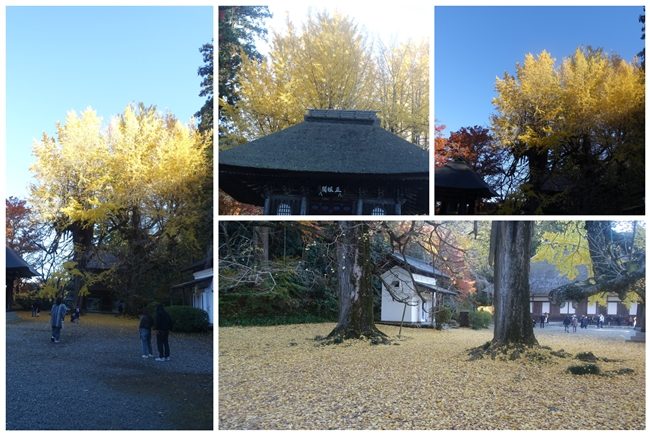みなさん、こんにちは。【4】
いつもお世話になっております、 「エムアイ産業翻訳研究所」 所長(代表)の エージロー @eejirow こと 三宅英世 (ミヤケヒデヨ)と申します。

標高500mの高原にちょっぴり遅れて訪れる世羅高原の春、日本最大級の花絵まで登場して盛大、賑やか!
極彩色の花々に囲まれ、ココロは異国へ~~~~♪(じゃらん5月号)
っていうことで、とても快晴で行楽日和な日曜日だったので、開通したばかりの高速尾道道(有料)を走って6万平方メートル、300種類70万本の満開
のチューリップのお花畑の丘を夫婦でのんびりと散歩して来ました。(2011.05.08)
#Twitter アプリをダウンロードし、いつでもどこでも Twitter を利用しましょう。お使いのモバイル端末で m.twitter.com にアクセスしてください。
【参考】
【17】 ウイルスバスター2012クラウド
トレンドマイクロ からのヒント:
(1)WEBサイトを開くときや閉じるときに突然表示される小さな画面内のリンクやボタンは絶対にクリックしないでください。
画面を直接閉じてください。
(2)メールに表示されているリンクをクリックせずに、ブラウザに直接WEBサイトアドレスを入力してください。
(3)Microsoft Internet Explorerを使用している場合は、セキュリティレベルを「中」よりも下に設定しないでください。
(4)よく知らない人からファイルの提供を受けたり、それを開いたりしないでください。
(5)外付けドライブ(携帯型フラッシュメモリUSBドライブなど)で渡された、よく知らないファイルは使用しないでください。
(6)知らない人から送信されたメール添付ファイルは、信頼できる知人から転送されたものでも、絶対に開かないでください。
(7)個人情報を入力する場合は、WEBサイトのアドレスの先頭が「https」であることを確認してください(セキュリティで保護されたWEBサイト)。
(8)よく知らないWEBサイトから提供されているソフトウェアはインストールしないでください。特に、写真、音楽、ビデオファイルを開く場合には
注意が必要です。 (了)
◆ #NHK 世界の人口 70億人を突破
◆ ひらがなタイムズ Hiragana Times, 1998年7月号(株式会社ヤック企画)
■Trust the Gods and Do Your Best
(天命を信じて人事を尽くす)
The world's eyes will be on the World Cup in France in which Japan will be participating for the first time this year.
(今年日本が初めて参加するフランス・ワールドカップに世界の目が集まっている。)
That's what we talked about the other day when I had the opportunity to speak with a politician up for election in the House of Councilors election next month.
(先日、来月に実施される参議院選挙に立候補するある政治家と話をする機会があったが、このことが話題になった。)
"Nicus, do you know the saying, 'If victorious, a national army; if defeated, a band of traitors.'?"
(「ニカスさん、『勝てば官軍、負ければ賊軍』という格言をご存じですか?」)
"Yes, it means that if you're the winner of a battle you're lionized, but if you lose you're looked down on, right?"
(「ええ、戦いに勝てばもてはやされ、敗れれば世間から冷たい目で見られるという意味ですね?」)
"Exactly.
(「その通りです。)
This phrase first came into use during the Meiji Restoration when the Kangun(a group that supported the Emperor)brought down the Tokugawa shogunate.
(この言葉は明治維新のときに官軍(天皇を支持するグループ)が徳川幕府を破ってから使われるようになったのです。)
This phrase fits the Japan team that won the qualifying round of this year's World Cup to a tee.
(今度のワールドカップ予選を勝った日本チームにもそのことわざが当てはまりますよ。)
It's illustrated perfectly by the popularity of Okano after the Asian zone play-offs.
(アジア予選のプレイオフ試合後の岡野への評価が端的にそのことを証明しています。)
During 'sudden-death' extra time, he missed as many as three surefire shots that would have meant a win for the team.
(サドンデスの延長戦で彼は3回ほど決定的なシュートチャンスをミスしました。)
If the team had lost that game and missed out on their chance to play at the World Cup, he might have been treated by the people of Japan like a war criminal, and it could have meant the end of his soccer career.
(あの試合に負けてワールドカップに出場できなかったら、彼はA級戦犯として日本国民から非難され、彼のサッカー人生はそれで終わっていたかもしれない。)
But, luckily for him, the ball bounced off the other team's goalkeeper falling in front of Okano who was able to get the decisive winning goal.
(ところが、その後、相手キーパーがはじいたボールが幸運にも岡野の前に転がってきて彼は決勝ゴールを決めることができた。)
With that shot he instantly became a hero, becoming so popular he even got his own TV commercial.
(それで、彼は一躍ヒーローとなり、テレビのコマーシャルにも出るほどの人気者になってしまった。)
It just goes to show that winning really is everything."
(やっぱり勝負には勝たなければ駄目だわ」)
The politician sighed and seemed to be musing on his own election campaign.
(政治家は自分の選挙戦に思いを寄せてか、ため息をついた。)
"Aren't you considered a sure thing in this election?"
(「先生は今度の選挙でも当選確実と予想されているじゃないですか」)
"Just the same Nicus, the last election was a close race.
(「ニカスさん、そうは言っても前回は接戦で当選したのです。)
There's no telling how this one will turn out.
(今回はどう変わる分かりません。)
If I lose this election, my world will fall part.
(選挙に落ちたら世間は私のことをボロクソにいいますよ。)
So all I can do is 'trust the gods and do my best.'"
(だから、『天命を信じて人事を尽くす』しかないんです」)
"Umm, isn't the saying supposed to go, 'Do your best and leave the rest to Providence?'"
(「あの、その格言は、『人事を尽くして天命を待つ』の間違いではないのですか?」)
"Nicus, that is better.
(「ニカスさん、これでいいんですよ。)
The first person to rephrase it that way was a certain president of a large corporation, but I like i, too.
(最初にこのように言い換えたのはある大手企業の社長ですが、私も同感なんです。)
The latter phrase is saying that in the end the gods may turn down your wish, but you should try your best anyway, right?
(『人事を尽くして天命を待つ』では、最後に神様にノーといわれるかもしれないが、頑張りなさいということですよね。)
How is that supposed to motivate someone?
(誰がこれでやる気が出ると思いますか?)
Obviously, you won't be prepared to give it your all if you can't believe that the gods will be smiling down at you in the end."
(やはり、最後は神様が自分にほほ笑んでくれると信じなければ、一生懸命になれません」)
This politician's pet saying certainly does make a lot of sense.
(確かにこの政治家が愛好する格言は人間の心理にかなっている。)
But I like the more positive saying of Uesugi Yozan, who carried out bold administrative reform and revived Yonezawa-han (present day Yamagata prefecture) during the Edo Period.
(でも、私は江戸時代に大胆な行政改革を行い見事に米沢藩(現在の山形県)を再興した上杉鷹山のもっと積極的な格言が好きだ。)
"Where there is a will, there is a way."
(「意志あるところに道あり」(なせば成る、なさねば成らぬ何事も、ならぬは人のなさぬなりけり))
◆とても便利な辞典・百科事典の検索サービスです ⇒ Weblio辞書
◆ 【英語 with Luke】 ネイティブが日本語で英語を説明します。
◆【 るるぶ.com特集一覧 】
桜、花火、紅葉などの季節の旬情報をはじめ、注目の宿泊情報や定番の旅ネタまで、
るるぶ.comが選りすぐりの情報をお送りします!
◆ 【楽天ブログ】
【 すべてのジャンル (ジャンル総合)】の【 日別アクセス数ランキング 】において過去最高ランクの【 総合第1位 】を記録した日(2013.10.01および
2013.10.02および2013.10.03‥‥)の画像につきましては こちら (初回)および こちら (2回目)および こちら (3回目)‥‥からどうぞ。
この 総合ランキングの続き は ⇒ ◆私のブログを紹介します。 【その2】 へ。
なお、画像を拡大するには、ポインタ(拡大鏡マーク)を画像上に置いて「左クリック1回、元のサイズに戻すには更に左クリック1回」を実行します。
ブログ管理人の私エージローも毎日 試行錯誤を繰り返し紆余曲折のあるなか、日々精進を重ねておりますので、ポチッ☆とバナー(健康ブログ&
広島ブログ)のクリック応援につきましても なにとぞ宜しくお願いを申し上げます。
あなたのバナークリックの応援だけが頼りで励みです。クリックは一日一度だけ有効です。
■ 余録 :やや唐突ながら、6年後ではなく50年前の東京‥‥
毎日新聞 2014年01月04日 01時00分
やや唐突(とうとつ)ながら、6年後ではなく50年前の東京五輪のころについて、年末に聞いた話の一端を紹介する。
当時を知らない人に時代の面影を伝えたい。
語 り手は団塊(だんかい)の世代。
経済成長の波が遅れて届いた地域の男性である。
小学生のころテレビのある家は珍しく、友達と一緒に自転車で理容店のテレビを見に通った。
「家にテレビが来た」のは五輪直前、高校3年の時だった。
日 本が金メダルに輝いた女子バレーボール。
選手全員の顔と名前を覚え、夢中で応援した。
もちろん他の日本選手たちの活躍にも熱狂し、その場面と感動を忘れない。
米国の陸上男子100メートル金メダリスト、ボブ・ヘイズの、今風に言えば「異次元の走り」にも驚嘆した。
多くの日本人はこの五輪で「初めて世界を見た」のかもしれない。
語 り手は自分が育った時代について「ワクワク感があった」と言う。
当時は誰でも知っていた「なせば成る」、つまり「頑張れば何とかなる」という感覚が普通にあったとも言う。
実際、中学卒で東京のソバ店に就職した同級生は立派な店のオーナーになった。
一流商社で活躍した別の同級生は故郷に戻り、存在感を増しつつある。
と はいえこの世代にも不安はある。
語り手には孫がいて、この子にも「ワクワク感」を抱きつつ育ってほしいが楽観してはいない。
頑張れば夢はかなうという確信が持てない時代になり、子供を鍛(きた)えるのも難しくなっている。
「 せ めてまっとうに穏やかに生きて、暮らしに困らず、戦(いくさ)もない世の中が続いてほしい」。
これが語り手の締めくくりの言葉だった。
為政者が肝に銘ずべき国民の願いである。
Yoroku: Looking back at the past for clues to a better future
I'd like to introduce a story from around the time of the 1964 Tokyo Olympics in the hope that it will be passed down to those who do not have a feel for that time in Japan's past.
The story comes from a baby boomer, who as an elementary school boy used to bike with friends to a local barber's to watch TV -- something that was not yet a common household appliance in the region where he's from, where the effects of the country's rapid economic growth were felt much later than in other areas.
It was only when he was a high school senior, or shortly before the Tokyo Olympics, that his family finally got a television set. He was enamored by the Japanese women's volleyball team, memorizing all the names and faces of players by the time the team clinched the gold medal. Other Japanese athletes also impressed him and left him with unforgettable memories.
American sprinter Bob Hayes, who won the gold medal in the men's 100 meter dash, also took his breath away with a performance that people today might describe as "a run in another dimension." The 1964 Olympics likely offered many Japanese their first taste of the rest of the world.
The man recalled that that time in Japan's history was filled with a sense of excitement. He said that people back then commonly subscribed to the belief that "where there is a will, there is a way," that anything was possible if one tried hard enough.
Indeed, one of his classmates who landed a job at a soba noodle restaurant in Tokyo after graduating from junior high school eventually became the owner of the restaurant. Another classmate who did brilliant work at a leading trading house returned to his hometown and has been commanding an increasing presence there.
That said, however, he and his contemporaries are not without worries. He has a grandchild who he hopes will grow up with the same excitement he did, but he's not too optimistic. After all, we no longer live in a world in which dreams come true as long as one tries their best, and it is difficult to prepare children for such a world.
"At the very least, I want (my grandchild) to live decently and peacefully, making ends meet, in a world with no wars," the man said. That same wish, one commonly held by the public today, is something that policymakers should keep in mind. ("Yoroku," a front-page column in the Mainichi Shimbun)
January 04, 2014(Mainichi Japan)
■ 翻訳 料について
一般に、翻訳料には、印税方式と請負方式(ワード方式、単発方式)などがある。
印税方式とは、出版物や楽曲など著作物の著作者・著作権者に対し、出版社やレコード会社や大手企業などの利用者が利用実績に応じ
て、著作者・著作権者・翻訳家らに対して支払う対価をいう。
一方、ワード方式とは、翻訳会社や財閥クラスの一流企業がフリーランスの翻訳者に対して翻訳を発注する際の計算方式で、一般的に
ワード(翻訳の数量的最小単位。英語1単語を1ワードという)あたりの単価×ワード数で当該案件の金額が決まってくる方式をいう。
専門分野や発注会社にもよるが、セミプロで1ワード10円、プロで1ワード15円~30円、特許権などの特殊翻訳や一流翻訳者の場合で
1ワード40円前後というのが2010年以降の最近の業界の相場である。
一見安いように見えるが、1ワードは言語の最小単位であり、最近のマニュアルや専門書は年々分厚くなってきており、1冊(1業務)
あたりのワード数は20万語から30万語を越えるものも多く、1か月1冊年間12冊以上翻訳すれば、セミプロ・クラスでは年収200万円前
後、ベテラン・クラスや一流翻訳者になると年収2,400万円から3,000万円程度である。
実情は、平均的には、フリーランスの翻訳者の場合、300万円から600万円というのが相場である。
しかし、一流翻訳者になると、年収2,400万円以上というケースもあるのも事実である。
■社会貢献
職業としての翻訳家であるか否かを問わず高度な語学力を有する者は、地方公共団体、特定非営利活動法人、ジャーナリストなどに対
して翻訳ボランティア活動を行うことが可能である。
たとえば、名古屋市における名古屋国際センターは、在日外国人の支援活動の一環として翻訳・通訳ボランティアを募集している。
また、東日本大震災の発生時に東京外国語大学の有志の学生たちにより「地震発生時緊急マニュアル」が作成され40か国以上の言語に
翻訳された。 (了)
■「私は 営業 が苦手です!」
と自負している方、けっこう多いと思います。大丈夫です。
「私は営業が得意だ!!!」
と自負している人はごく少数ですから。
でも、苦手だと自負しているからと言って、売らなくてもいいわけではありません。それが大人の世界です。
というわけで今回は、
「私には営業力がない!」と自負しているあなたが集客できるようになるために、あなたのホームページに記載すべき3つの項目につ
いてお話ししましょう。
この3つの項目をホームページに記載すれば、
●今までなんで営業に悩んでいたんだろう・・・
●営業力なんて必要ないじゃん・・・
と、営業力のない自分を責めていた日々を懐かしくすら思えるようになるでしょう。
では3つ、ご紹介していきます。
(1)徹底的な自己紹介
簡単な自己紹介ではダメです。自分をさらけ出せばだすほど集客できると信じて、最低限、次の項目を記載します。
1.顔写真(奇跡の一枚でもOK!)
2.氏名(苗字だけではダメです)
3.生年月日(年齢もしっかり明かしましょう)
4.小学校からの学歴(学力の高くない高校とかでも書きます)
5.職歴(現在のビジネスに関連したところを中心に)
6.家族構成(一男一女の父です!とか)
7.趣味(スポーツ系が良いですね)
今のあなたの自己紹介ページに、どこまで記載してありますか?
年齢は隠しておきたい・・・ちょっとヤンチャな高校出ちゃったから・・・と、隠しがちだったりしませんか?
自分をさらけ出さない人を信用しろと言われても無理ですよね。お客さんも同じです。
ホームページであなたのことを詳しく知ることができれば、お客さんは、
「あぁ、こういう人なら安心ね!」
と、最初から信用して問い合わせてくれることすらあるでしょう。
また、さらけ出した自分の情報の中に、お客さんは、「あなたとの共通点」を見つけてくれるかもしれません。
共通点は安心感を生む大きな材料になります。同じ学校を卒業している、とか、同い年、とか、それだけで安心することってあります
よね。
出す情報が多いほど、共通点が見つかる可能性は高まるのです。
お客さんがあなたに安心感を持ち、疑いのない眼差しであなたを見つめてくれたとしたら・・・
お客さんとの会話はもう「営業」ではなく、
「必要な物を必要な人に必要な価格でお渡しするためのやりとり」
になります。
営業力は要りません。
(2)可能な限りのコミコミパックとコミコミ価格
あなたのホームページには、いろいろな商品やサービスが掲載されていると思います。
それらは、パッと見ただけでお客さんが欲しいもの全てを叶えるものになっていますか?
それらは、パッと見ただけで「トータル価格のイメージ」をできるようになっていますか?
商品を全て掲載していたとしても、私の問題を解決するのに必要なものは、これとこれとこれと・・・えーっと、これも必要かな。。。
価格をしっかりと掲載していたとしても、これがいくらでこれがいくらで、ウチだとこれとこれとこれで。。。
あー、結局いくらかかるのー???という状況であるとしたら、これを改善しなければなりません。
その改善方法は、コミコミパック化とコミコミ価格化です。
お客さんが自分の問題を解決したり、欲求を満たすのに必要な商品構成をパッケージ化し、それを「コミコミ●●●●円!」と明確に
記載するのです。
私は以前、家の車庫のコンクリート工事をよく受注していました。
車庫のコンクリート工事っていくらくらい掛かるか想像できますか?
当時、どこのホームページを見ても、これを明確に教えてくれるサイトがありませんでした。
そこで私が
「車庫土間コンクリート1平米(1mx1m)あたり12,000円!」
と明確に打ち出してみました。
これなら、
「ウチの車庫は3mx5mだから18万円ね!」
とイメージが付きますよね。
で、受注できていたわけです。
電話が掛かってきて、
「3mx5mなんですけど、18万円でいいですか?」
と聞かれ、
「はい!」
と答えるだけで成約、という流れです。営業力は要りません。
(3)徹底的なサービスフロー説明
あなたのホームページには「サービスの流れ」の説明が掲載されていますか?
もしなければ、スグに掲載してください。しかも、かなり細かく作って、丸暗記してください。
営業が得意でない方は、お客さんとのやりとりでテンパります。
柔軟に対応しようとすればするほど、頭がまわらなくなります。
ですので、「柔軟に対応する」という考えをまず捨てましょう。
そのために必要なのが、この「徹底的なサービスフロー」です。
ホームページに、
「ウチがお仕事させて頂く場合は、
1.お客様がこうして
2.私共がこうして
3.お客様がこうして
4.私共がこうして・・・・」
と、事細かに記載するのです。
そして、このフローを完全に丸暗記してください。
これができると、お客さんとのやりとりにいちいち頭を使う必要がなくなります。
一つ一つ、明確にされたステップを踏んでいく「作業」になります。
柔軟な対応は要りません。営業力は要りません。
以上、もしあなたが、ご自身の営業力に自信がないなら、ぜひ、力を入れてホームページに記載してみてください。
実は私も、営業は全然得意ではありません。
私の弟は住宅業界でトップクラスの天才営業マンなので、そんな弟との違いに打ちひしがれることもありました。
しかし、これら3つの項目を掲載していくことで「自分が営業する」というステップを極限まで減らすことができ、ストレスなく集客
するということができるようになりました。
営業が苦手なら、営業しないで済むようにしよう、と工夫した結果です。ぜひ試してみてください!
(注)件名:営業力がない人がホームページに記載すべき3つの項目
送信日時:2014/05/08 (木) 12:22
2014年05月08日、以上のようなメールが届いていました。ぜひ、ぜひ参考にしてくださいね。 by エージロー
■ みんなの花図鑑 マイページ (2016.10.17.Mon.)
© Rakuten Group, Inc.





